Our Blog
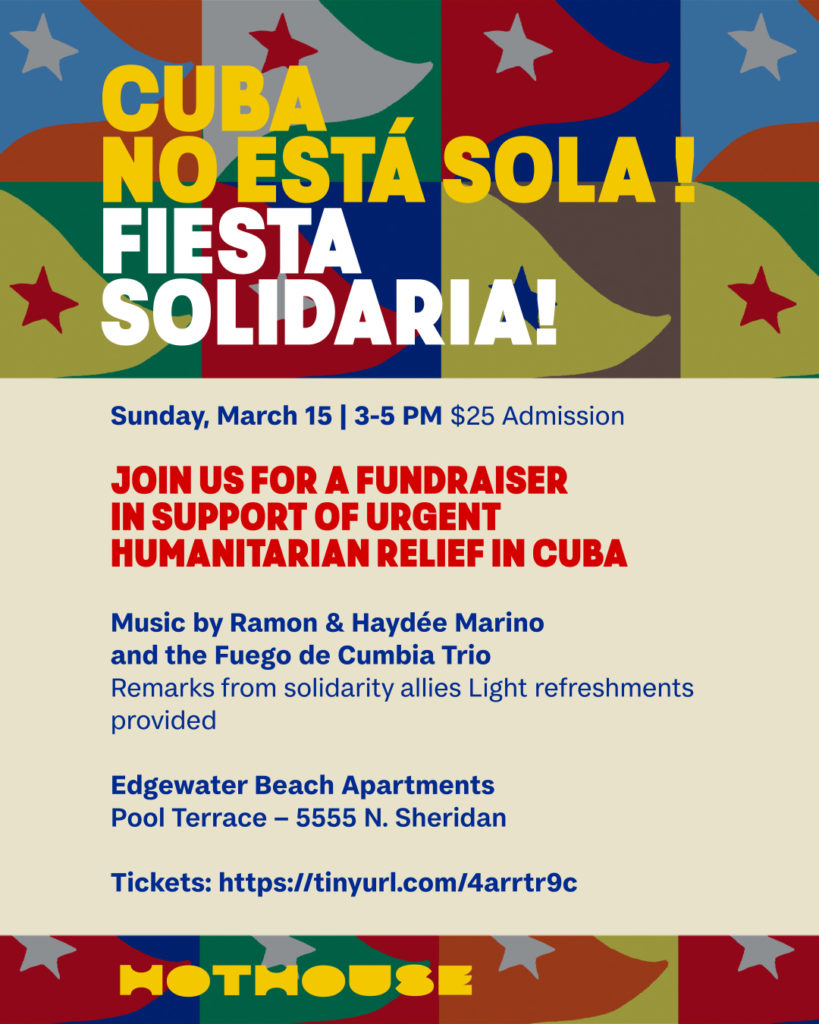
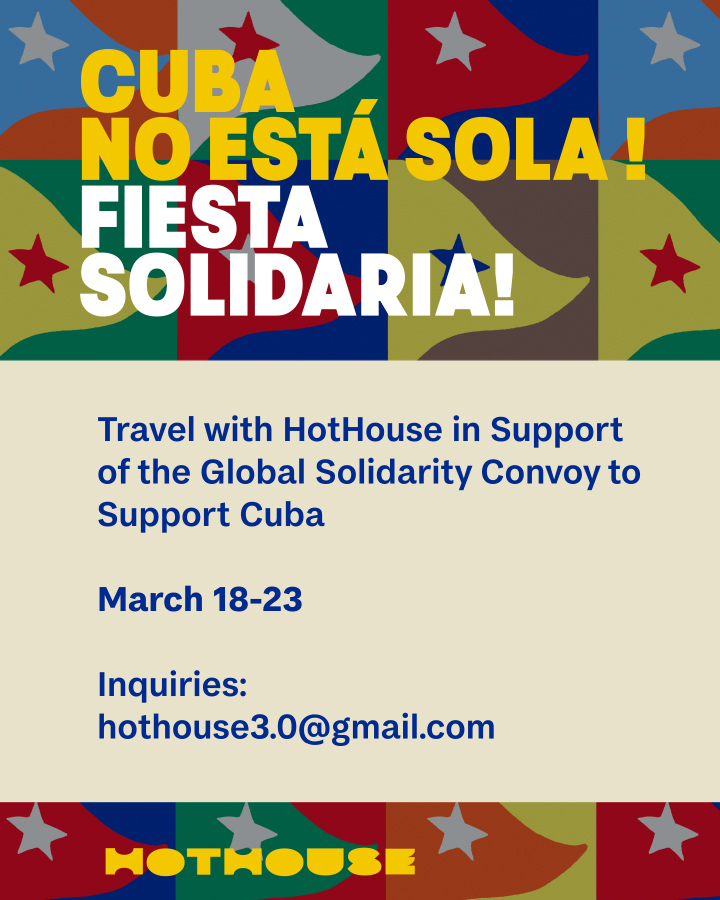
- Join our small group contingent for a short 5 day program from March 19 to March 23. We will be joining contingents from all over the world as they convene in HAVANA On MARCH 21.You do not have to live in Chicago to join us.
- Our HotHouse program to join the global initiative to provide emergency relief to Cuba is now accepting applications. Some travel subsidy available for low income participants.
To Contribute Material Aid
We are accepting donations of medicines and other essentials via our trusted partners at Global Health Partners. click on hyperlink to make direct donation to GHP.
We are also seeking donations of MONEY to assist with this campaign by offsetting our travel costs and supporting participation for low income delegates, or contributing to purchasing life saving supplies. We will be taking one suitcase per person to deliver to the Martin Luther King Center in Havana. If you have any non-expired medicines to donate, please text 312-752-5316 to arrange delivery.
please send donations via Zelle (The Center for International Performance and Exhibition) or by check to HotHouse 5555 N. Sheridan Apt. 1107 Chicago 60640 please do not write “Cuba” on check or Zelle memos. Or BUY a ticket or donate via the eventbrite link for our upcoming Fundraiser for the Convoy on March 15 at https://tinyurl.com/4arrtr9c. Thank you
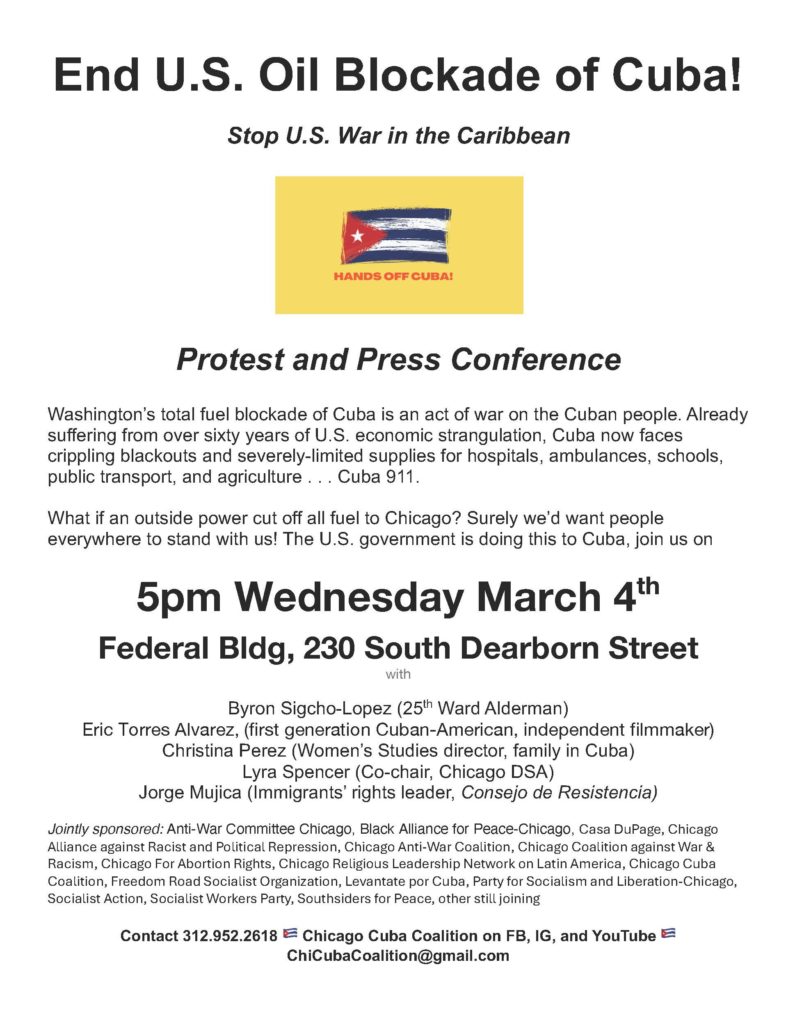
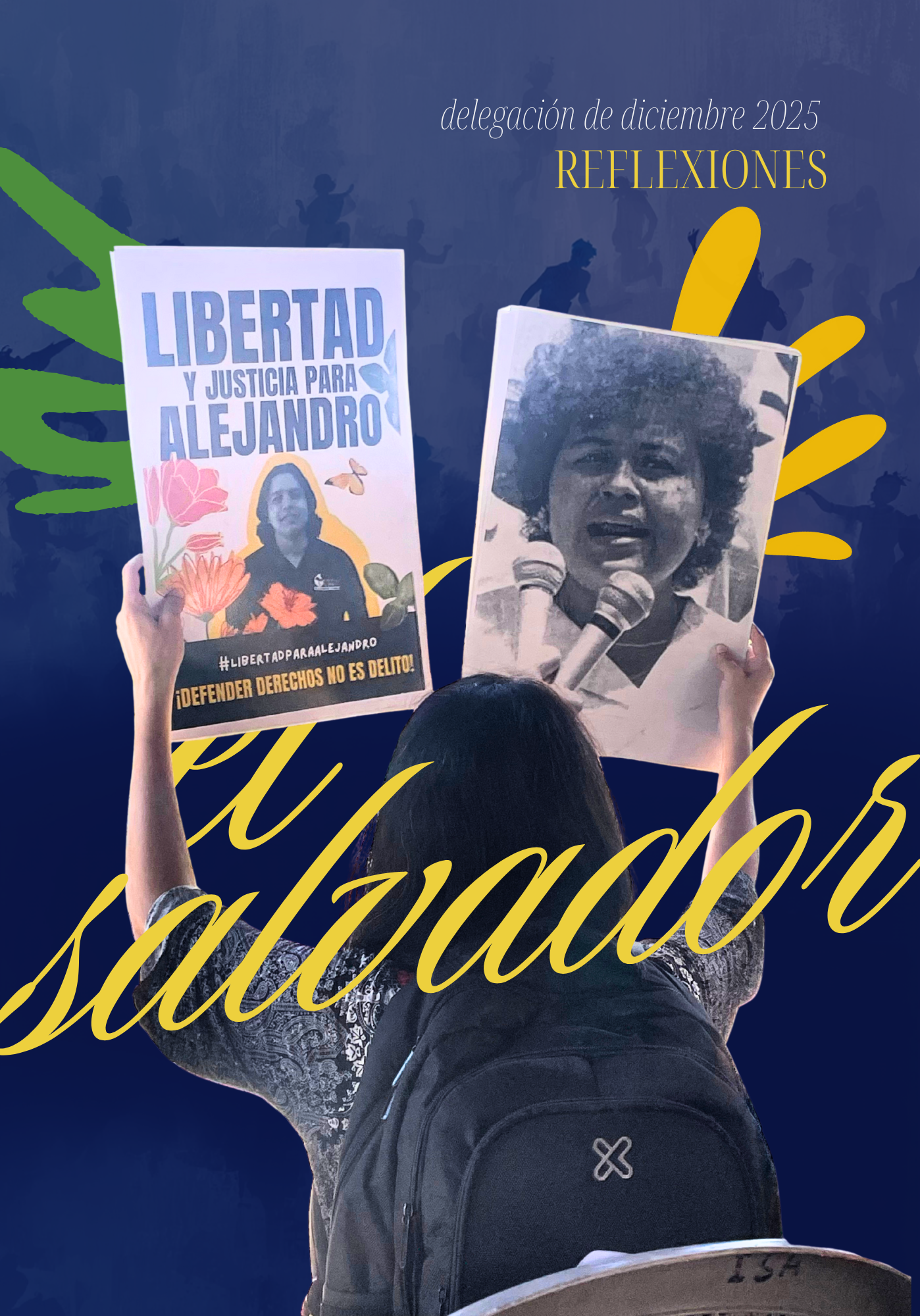
Durante una semana, delegades acompañaron a comunidades, organizaciones sociales y defensoras de derechos humanos en El Salvador, aprendiendo sobre el contexto nacional, la memoria histórica y las luchas actuales por la justicia y la dignidad.
La delegación participó en análisis del contexto nacional, visitó comunidades y organizaciones como PRO-VIDA, CRIPDES y Tutela Legal, y recorrió espacios históricos como la Catedral Metropolitana, la Cripta de Monseñor Romero y el Parque Cuscatlán.
Uno de los momentos más significativos fue el acompañamiento a la conmemoración de la Masacre de El Mozote en Morazán, junto a sobrevivientes, organizaciones de derechos humanos y comunidades comprometidas con la memoria, la verdad y la justicia.
Lea las reflexiones de los delegades aquí
For one week, delegates accompanied communities, grassroots organizations, and human rights defenders in El Salvador, learning about the national context, historical memory, and ongoing struggles for justice and dignity.
The delegation took part in political and social analysis, visited organizations such as PRO-VIDA, CRIPDES, and Tutela Legal, and walked through key historical sites including the Metropolitan Cathedral, Monsignor Romero’s Crypt, and Cuscatlán Park.
One of the most powerful moments was accompanying the commemoration of the El Mozote Massacre in Morazán, alongside survivors, human rights organizations, and communities committed to memory, truth, and justice.
Read the delegates’ reflections here
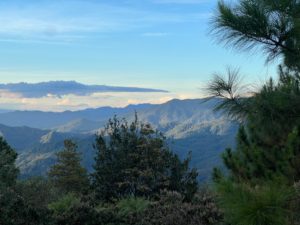
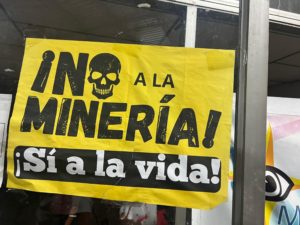
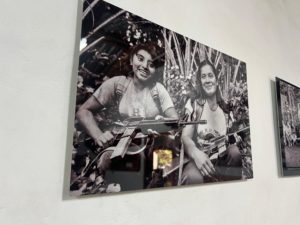
EMERGENCY STATEMENT: WE REPUDIATE THE ATTACKS BY THE UNITED STATES AGAINST VENEZUELA
January 3, 2025
The Chicago Religious Leadership Network on Latin America (CRLN) joins the international community and solidarity movements in the United States to unequivocally denounce the illegal and unconstitutional military assault carried out today by the Trump regime against the sovereign Bolivarian Republic of Venezuela.
The aggressive operation resulting in indiscriminate bombings of Venezuelan cities and the kidnapping of President Nicolás Maduro by U.S. forces, constitutes a blatant act of war, a violation of international law, and an affront to the fundamental principles of national sovereignty and self-determination.
We condemn, in the strongest possible terms, the use of U.S. military force as a tool of imperial domination. This assault is not a legitimate act of defense, but a continuation of decades of coercive economic warfare, sanctions, political interference, and now overt military aggression directed at Venezuela’s people and government. Such actions not only violate the United Nations Charter but undermine global norms of peace and diplomacy.
We stand in unwavering solidarity with the people of Venezuela, with workers, students, families, and communities whose lives are imperiled by this unjustified intervention. We affirm the inherent right of the Venezuelan people to determine their own future free from foreign domination, and we recognize their struggle as part of a broader global fight against militarism, coercion, and empire.
Today’s events should serve as a call to all peoples and governments around the world: we must unite to denounce this act of aggression, uphold international law, and mobilize in defense of democracy.
CRLN
—————————————–
DECLARACIÓN DE EMERGENCIA
REPUDIAMOS LOS ATAQUES DE ESTADOS UNIDOS CONTRA VENEZUELA
La Red de Lideres Religiosos de Chicago por Latinoamérica (Chicago Religious Leadership Network on Latin America, CRLN) se suma a la comunidad internacional y a los movimientos de solidaridad en Estados Unidos para denunciar de manera inequívoca el ataque militar ilegal e inconstitucional llevado a cabo hoy por el régimen de Trump contra la soberana República Bolivariana de Venezuela.
La operación agresiva, que resultó en bombardeos indiscriminados de ciudades venezolanas y en el secuestro del presidente Nicolás Maduro por fuerzas estadounidenses, constituye un acto flagrante de guerra, una violación del derecho internacional y una afrenta a los principios fundamentales de soberanía nacional y autodeterminación de los pueblos.
Condenamos, en los términos más enérgicos posibles, el uso de la fuerza militar de Estados Unidos como instrumento de dominación imperialista. Este ataque no es un acto legítimo de defensa, sino la continuación de décadas de guerra económica coercitiva, sanciones, injerencia política y, ahora, agresión militar abierta dirigida contra el pueblo y el gobierno de Venezuela. Tales acciones no solo violan la Carta de las Naciones Unidas, sino que socavan las normas globales de paz y diplomacia.
Nos solidarizamos de manera inquebrantable con el pueblo de Venezuela—con las y los trabajadores, estudiantes, familias y comunidades cuyas vidas se ven amenazadas por esta intervención injustificada. Afirmamos el derecho inherente del pueblo venezolano a determinar su propio futuro, libre de dominación extranjera, y reconocemos su lucha como parte de una batalla global más amplia contra el militarismo, la coerción y el imperio.
Los acontecimientos de hoy deben servir como un llamado urgente a todos los pueblos y gobiernos del mundo: debemos unirnos para denunciar este acto de agresión, defender el derecho internacional y movilizarnos en defensa de la democracia.
CRLN
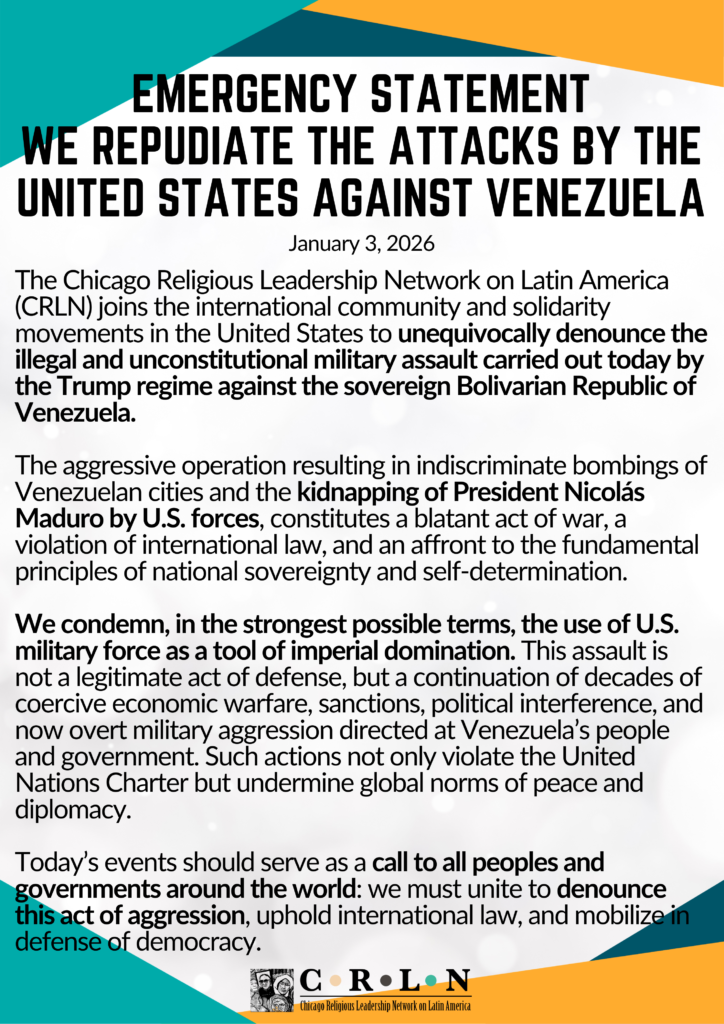
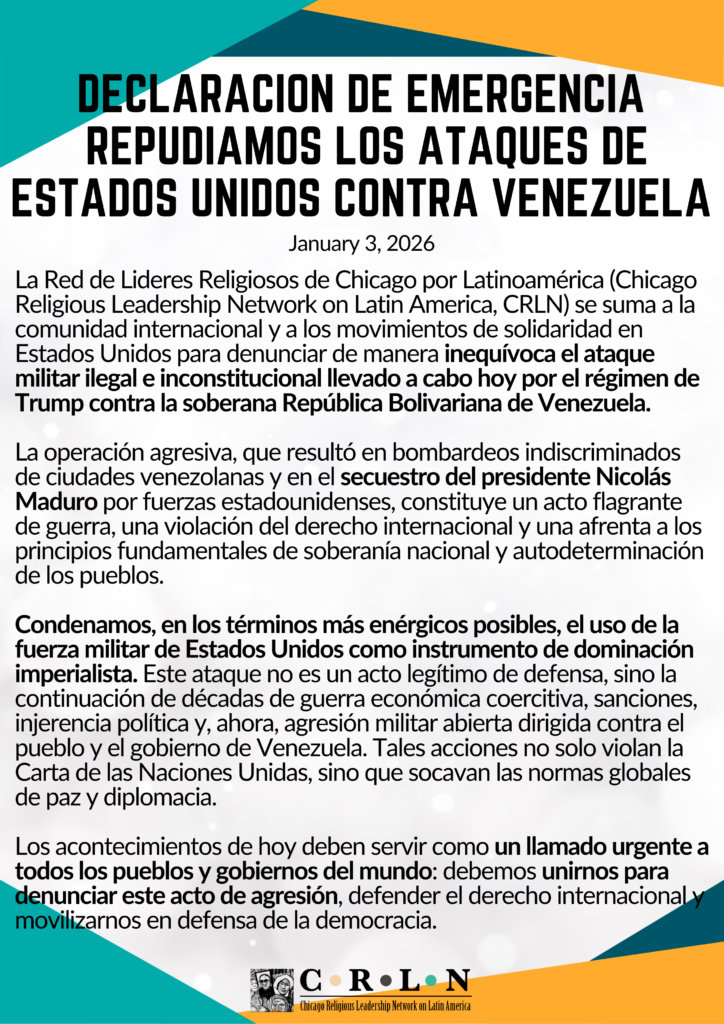
Join us for a fundraiser full of music, community, and shared vision! 💫 Featuring live music inspired by Los Torogoces and stories from Sebastián Torogoz new book. Read Sebastián Torogoz Biography This special night will honor the past, uplift the present, and build toward a just future — all while raising funds to keep solidarity strong.
Details
November 14, 2025 from 5-8:00 PM
Latin Patio, 3115 N Central Ave Chicago, IL 60634
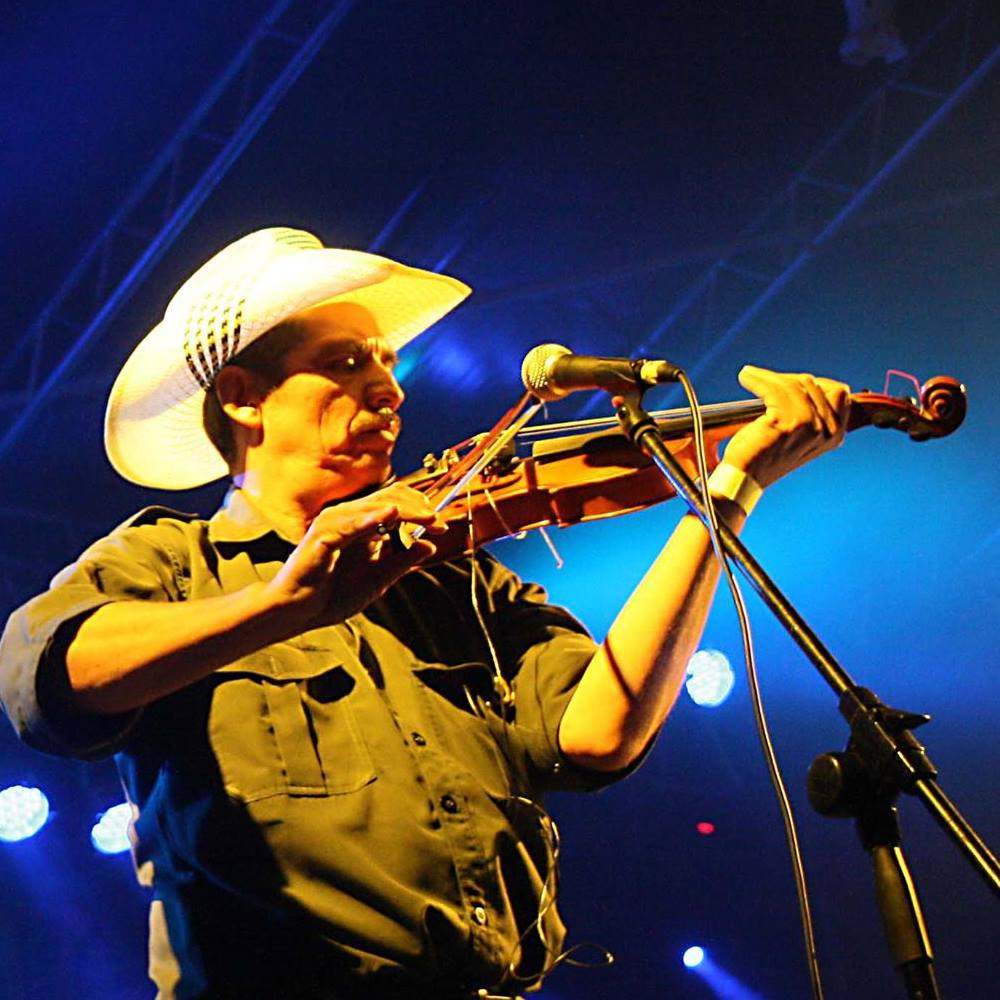
Benito Chica Argueta, better known as Sebastián Torogóz, was born in the rural Cantón El Zapotal in Joateca, Morazán, El Salvador. He was the fourteenth child of his parents, Francisco Chica and Cástula Argueta. From an early age, around nine, he began playing guitar at home; his siblings were part of a chanchona (a rural string ensemble) that performed at family celebrations and community events. In his youth, Sebastián joined community Christian reflection groups (which later became part of the Comunidades Eclesiales de Base) in El Zapotal. There he participated in courses on first aid and community health, blending spiritual reflection with social praxis. In 1978, he formally joined the armed struggle via the Ligas Populares 28 de Febrero (which later became part of the ERP). In June 1981, Sebastián and fellow combatants founded Los Torogoces de Morazán, the musical group that became closely associated with Radio Venceremos and the cultural resistance during the Salvadoran war.
During the twelve years of war, Los Torogoces acted as “juglares¨ troubadours of resistance, traveling through conflict zones, performing songs, sharing stories, and offering laughter in the face of adversity. Sebastián employed music, storytelling, and theatrical satire, often impersonating figures of the elite or military, as a tool to challenge authoritarian power and uplift communities under duress.
After the signing of the peace accords, he reassembled the group with younger generations and continued touring both nationally and internationally. Among his notable works are corridos like Recordando al Profeta (in tribute to Oscar Romero) and Corrido al Mozote, honoring victims of the Mozote massacre. He has also actively engaged in memory work—publishing, performing, and organizing events that resist silencing of El Salvador’s violent past.
Sebastián’s artistry is deeply rooted in the folk traditions of Morazán and El Salvador’s eastern region, combining instruments such as harp, marimba, and strings with narrative lyrics that document struggle, identity, and resilience. His music remains informed by a liberation perspective that insists on the importance of collective memory, social justice, and cultural reclaiming. In recent years, he continues to mentor youth, organize concerts, and deliver talks that bridge El Salvador’s past and present struggles, deepening transnational solidarity and cultivating new generations of cultural and political memory keepers.
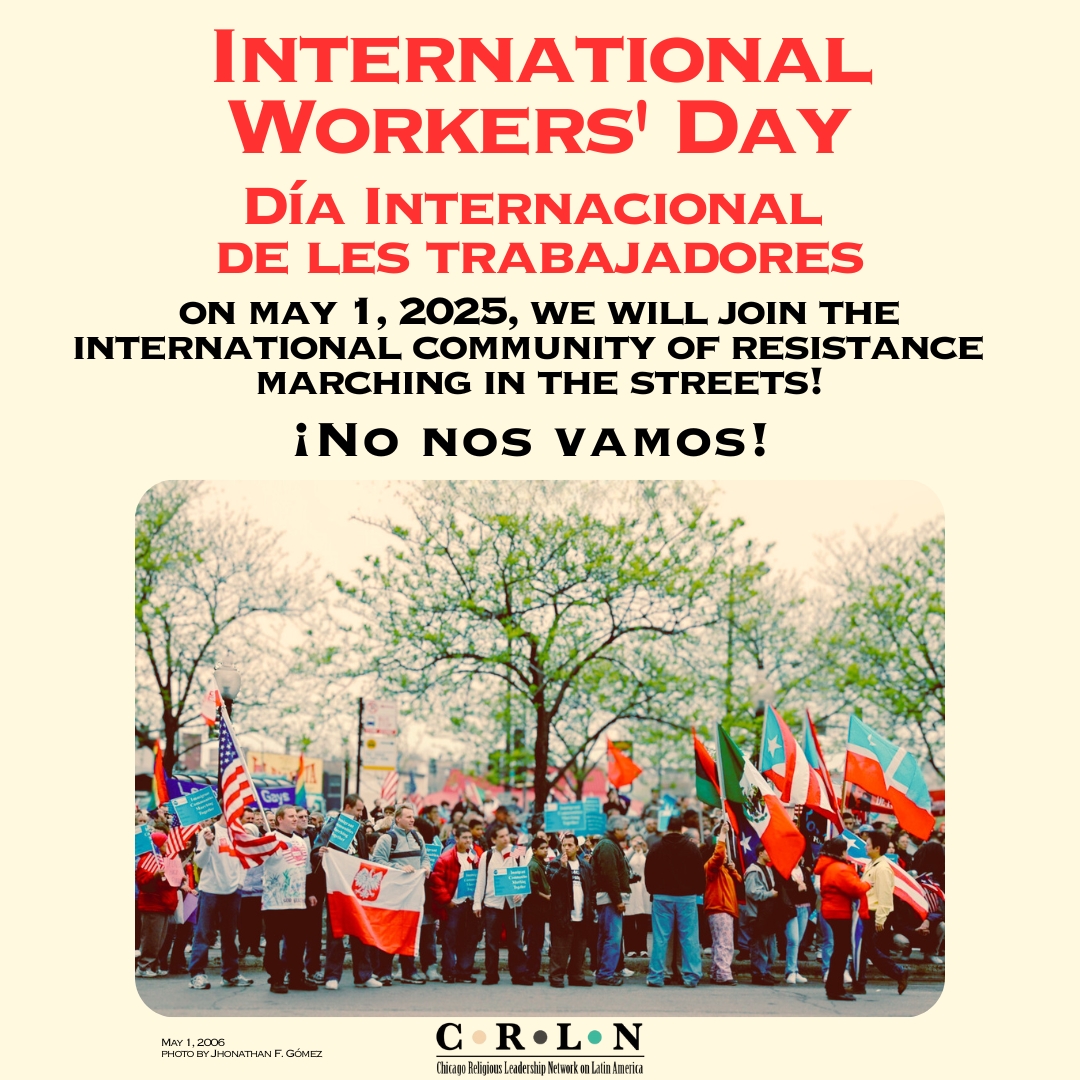
May 1 is for the workers, we are all workers, and it is International Workers’ Day. May Day is a bittersweet forgotten history for anyone living in Chicago. If one is paying attention to the marches that happen from México, Guatemala, Chile to Brazil, and around the world, Chicago is almost always referenced. As the retired Reverend Dan Dale reminds us at CRLN ¨May Day was forged from the bloodshed and bravery of workers in Chicago, who dared to dream of a world where they would be treated with dignity.¨
CRLN honors the martyrs of 1886 and the millions who marched in the 2006. They are who continue to be the spirit of this movement. Their struggle is not in the past, it lives in undocumented workers fighting for fair wages, and students resisting family separation.
Under today’s repressive regime, as authoritarianism threatens the lives of all immigrants, workers, and the most vulnerable, we must take to the streets again.
On May 1, CRLN will be in the streets to honor the historic memory of the 1886 Martyrs, as well as the memory of the 2006 marches and to participate as we write a new chapter of resistance for Chicago and the United States.
CRLN will join the Interfaith Gathering that Arise Chicago has organized.
📅 Date: May 1, 2025
🕙 Time: 9:30AM – 10.30AM
📍 Location: Union Park, 1501 W Randolph St., Chicago, IL 60606
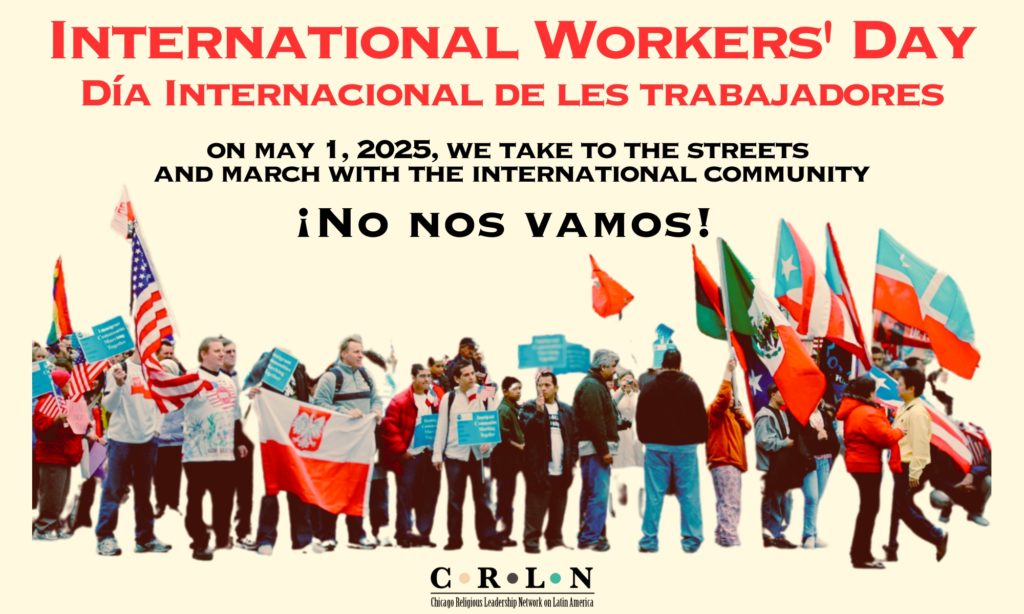
May 1 is for the workers, we are all workers, and it is International Workers’ Day. May Day is a bittersweet forgotten history for anyone living in Chicago. If one is paying attention to the marches that happen from México, Guatemala, Chile to Brazil, and around the world, Chicago is almost always referenced. As the retired Reverend Dan Dale remind’s us at CRLN ¨May Day was forged from the bloodshed and bravery of workers in Chicago, who dared to dream of a world where they would be treated with dignity.¨
On May 1, 1886, thousands of Chicago workers participated in a national strike demanding what today itself may seem in need of reform, the infamous eight-hour workday.
On May 4, during a peaceful rally at Haymarket Square, people protested police violence from a previous strike, and a bomb was thrown at the police. The police retaliated by opening fire and killing several people. The person responsible for the bomb was never identified. This led to eight people being arrested and four being executed.
August Spies – German-born editor of the anarchist newspaper Arbeiter-Zeitung.
Albert Parsons – Former Confederate soldier turned socialist and anarchist, editor of The Alarm.
Adolph Fischer – Printer and labor activist.
George Engel – German immigrant and militant socialist.
¡Presente!
The Haymarket Martyrs, as they were now known, became international symbols of working-class resistance. The memory of the Chicago Martyrs found a special connection with other worker movements in Latin America and Europe. Many of us who grew-up or know Latin American history find it ironic that despite many efforts to erase this radical history in the U.S., countries across Latin America and the world honor May Day as a day of action, historic memory and resistance, helping preserve this historic memory. May Day is a day people march to reclaim the dignity of workers, to demand justice for the poor, and to fight back against the violence of neoliberalism, exploitation and the political repression of capitalism.
Here in Chicago, in 2006, this forgotten historic memory was fused with the efforts for migrant justice that brought the immigrant rights marches of 2006, 2007 and 2008 into action. Organizers were aware of the importance of the date and participated in a historic moment that saw over 500,000 people, many from Latin America marching to have their voices heard in the streets of Chicago. I personally remember those marches because they hold a special place in my political education and formation. People filled the streets demanding comprehensive immigration reform, an end to deportations, and recognition of their labor and humanity. These marches were not only some of the largest in U.S. history but also a turning point that connected immigrant rights to the broader struggle for workers’ rights. Today, these demands remain unanswered. Some of us believe some aspects are worse. While we have won many local and national fights that benefit migrants, our undocumented sisters and brothers are owed so much more. One day soon, we will be able to talk about reparations for our undocumented community in the USA. And that painful conversations will have to include how forced migration was always a factor of decades of predatory and failed U.S. foreign policy.
CRLN honors the martyrs of 1886 and the millions who marched in the 2006. They are who continue to be the spirit of this movement. Their struggle is not in the past, it lives in undocumented workers fighting for fair wages, and students resisting family separation.
Under today’s repressive regime, as authoritarianism threatens the lives of all immigrants, workers, and the most vulnerable, we must take to the streets again.
On May 1, CRLN will be in the streets to honor the historic memory of the 1886 Martyrs, as well as the memory of the 2006 marches and to participate as we write a new chapter of resistance for Chicago and the United States.
¡No nos vamos!
CRLN will join the Interfaith Gathering that Arise Chicago has organized.
📅 Date: May 1, 2025
🕙 Time: 9:30AM – 10.30AM
📍 Location: Union Park, 1501 W Randolph St., Chicago, IL 60606
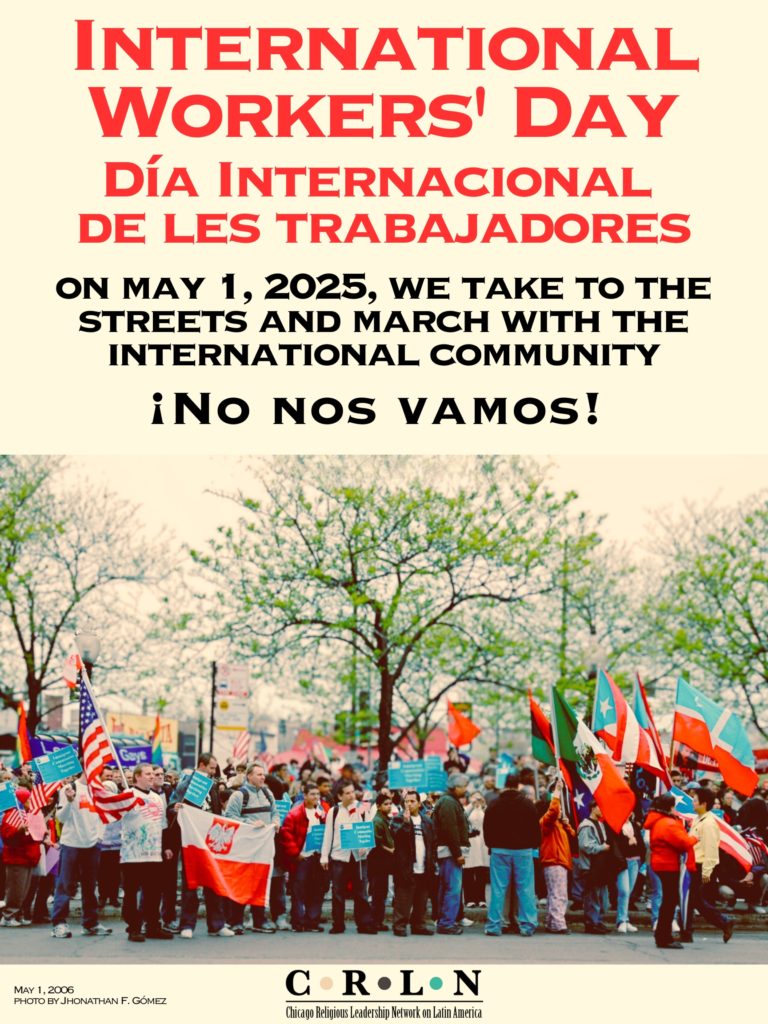
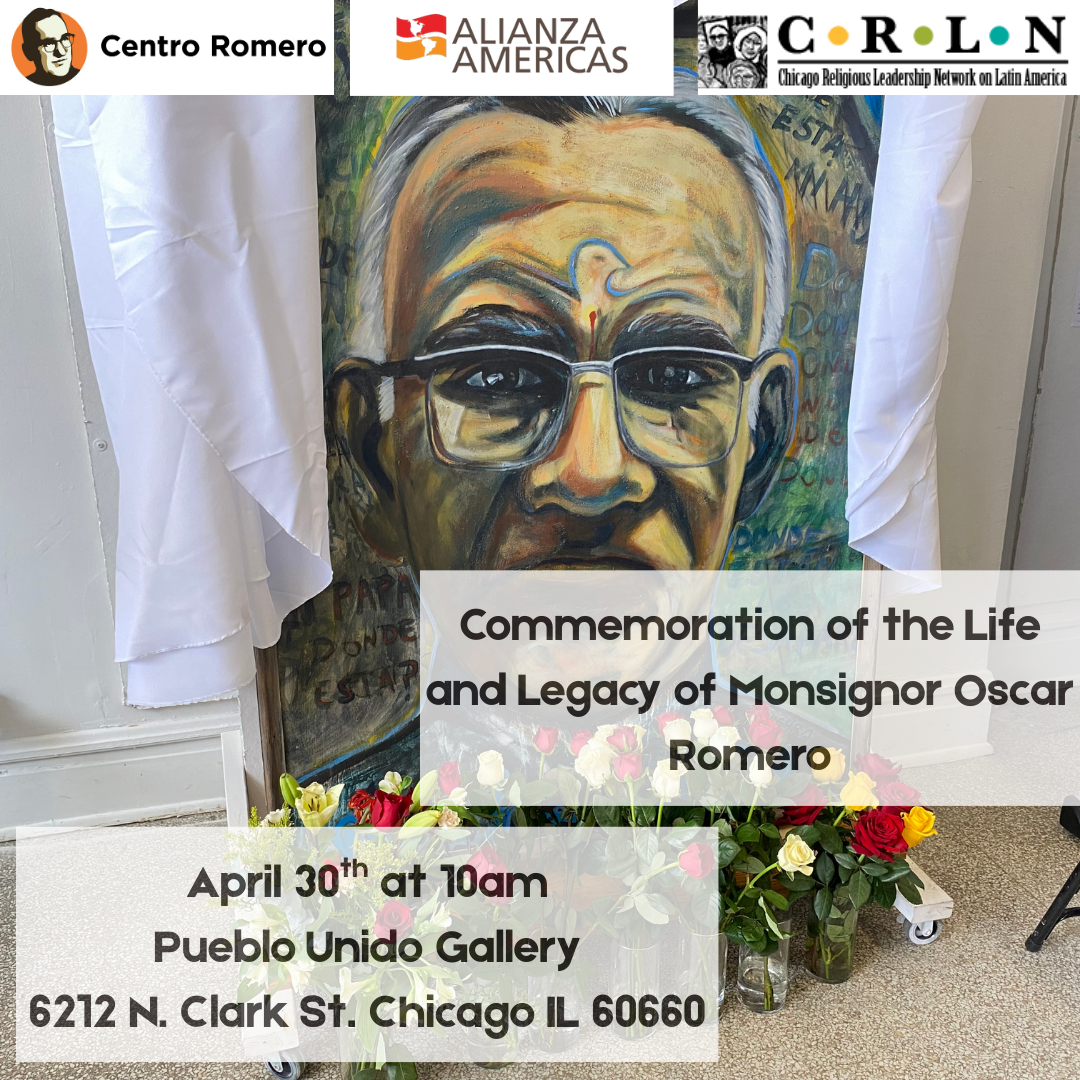
Saint Oscar Romero was a courageous voice for justice and human rights in El Salvador. As Archbishop, he became a new voice of hope during the brutal repression of the war. He understood that he must use his pulpit to denounce the violence and injustices inflicted on the poor by the military dictatorship. Romero was committed to truth and justice, despite receiving threats and ultimately being assassinated by U.S.-trained death squads in 1980, he continues to inspire movements for peace and dignity across the Americas.
In today’s context, where immigrant communities are among the most vulnerable and are targets of the rising authoritarian Trump regime, Romero’s legacy serves as a reminder of the power of faith-rooted resistance and actions in confronting oppressive systems. The Chicago Religious Leadership Network on Latin America (CRLN) was founded in part as a response to Romero’s prophetic work for the oppressed. His vision for justice is embedded in our mission as we stand in solidarity with resistance communities in Central America and fight with immigrant rights communities in Chicago. That is why we are honored to partner with Centro Romero—an institution that has served the immigrant and refugee community in Chicago for over 40 years. Though March is traditionally the month in which we celebrate Saint Romero’s life, every day remains an opportunity to honor his memory by working to dismantle injustice, from El Salvador to the streets of Chicago. Romero’s legacy lives on through the continued efforts of Centro Romero, CRLN, and Alianza Americas. Centro Romero addresses urgent needs through direct services, while CRLN advances interfaith advocacy, education and action for systemic change. Together, we are committed to educating, empowering, and organizing immigrant, Latino/a, and refugee communities to confront today’s injustices with the same courage and conviction that Romero embodied. Join us on April 30 at 10AM.
📅 Date: April 30, 2025
🕙 Time: 10:00 AM
📍 Location: Pueblo Unido Gallery at Centro Romero, 6212 North Clark Street, Chicago, IL 60660
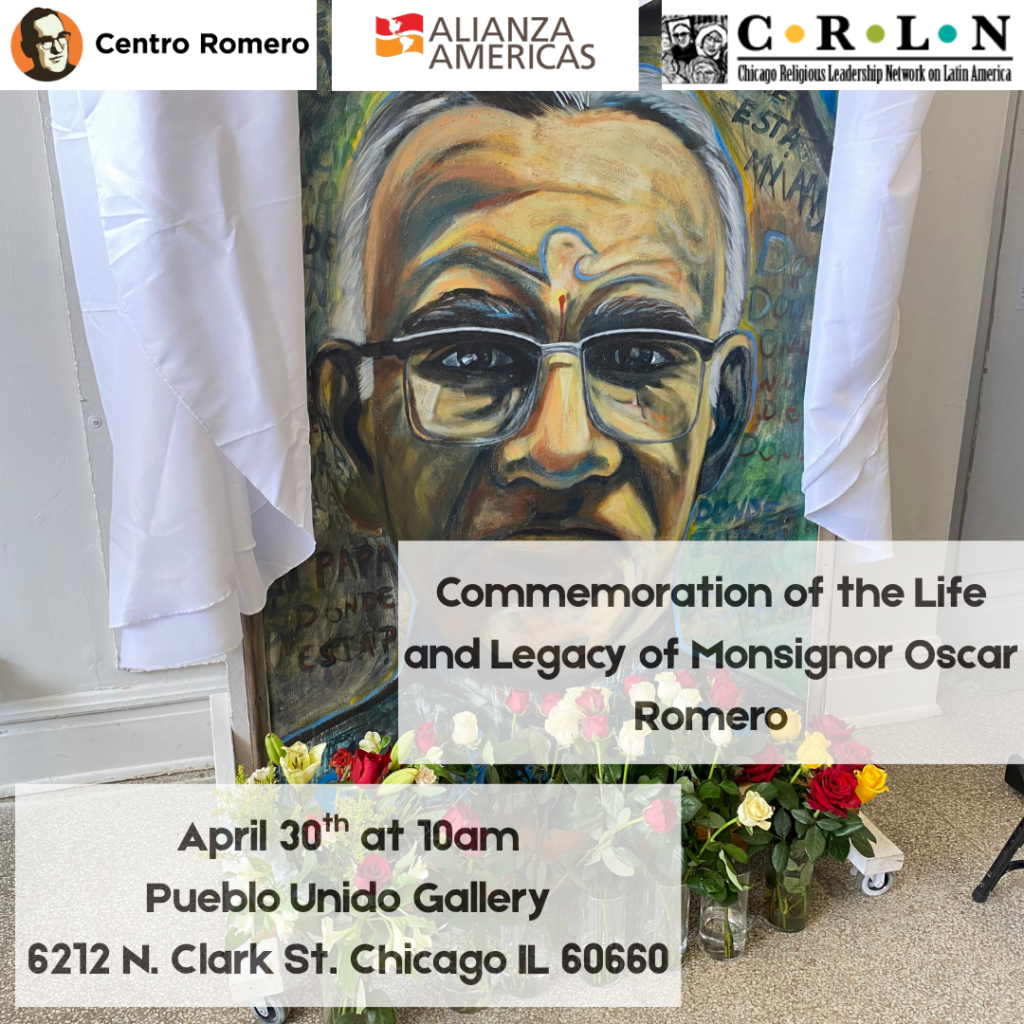
Saint Oscar Romero was a courageous voice for justice and human rights in El Salvador. As Archbishop, he became a new voice of hope during the brutal repression of the war. He understood that he must use his pulpit to denounce the violence and injustices inflicted on the poor by the military dictatorship. Romero was committed to truth and justice, despite receiving threats and ultimately being assassinated by U.S.-trained death squads in 1980, he continues to inspire movements for peace and dignity across the Americas.
In today’s context, where immigrant communities are among the most vulnerable and are targets of the rising authoritarian Trump regime, Romero’s legacy serves as a reminder of the power of faith-rooted resistance and actions in confronting oppressive systems.
The Chicago Religious Leadership Network on Latin America (CRLN) was founded in part as a response to Romero’s prophetic work for the oppressed. His vision for justice is embedded in our mission as we stand in solidarity with resistance communities in Central America and fight with immigrant rights communities in Chicago. That is why we are honored to partner with Centro Romero—an institution that has served the immigrant and refugee community in Chicago for over 40 years. Though March is traditionally the month in which we celebrate Saint Romero’s life, every day remains an opportunity to honor his memory by working to dismantle injustice, from El Salvador to the streets of Chicago.
Romero’s legacy lives on through the continued efforts of Centro Romero, CRLN, and Alianza Americas. Centro Romero addresses urgent needs through direct services, while CRLN advances interfaith advocacy, education and action for systemic change. Together, we are committed to educating, empowering, and organizing immigrant, Latino/a, and refugee communities to confront today’s injustices with the same courage and conviction that Romero embodied. Join us on April 30 at 10AM.
📅 Date: April 30, 2025
🕙 Time: 10:00 AM
📍 Location: Pueblo Unido Gallery at Centro Romero, 6212 North Clark Street, Chicago, IL 60660
